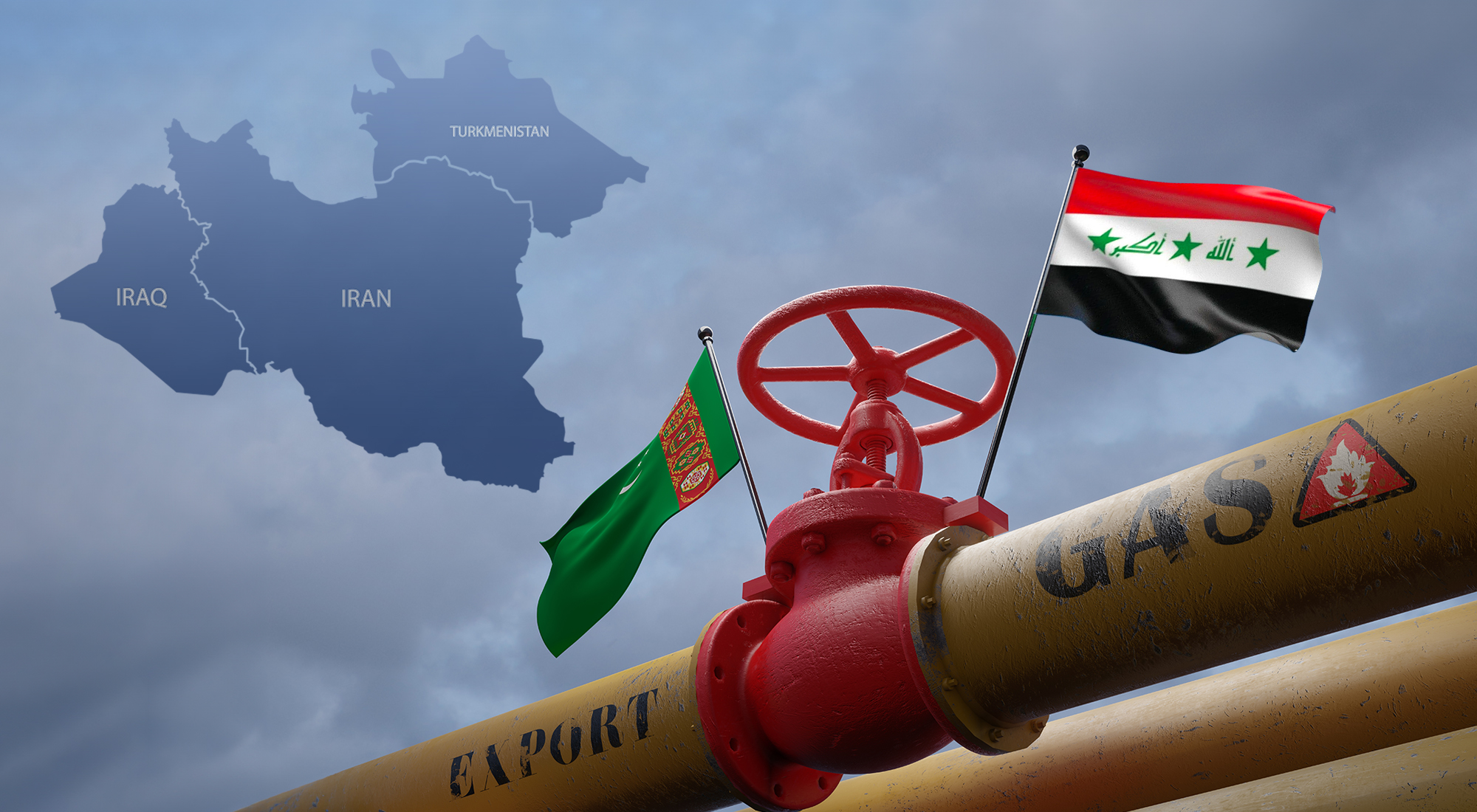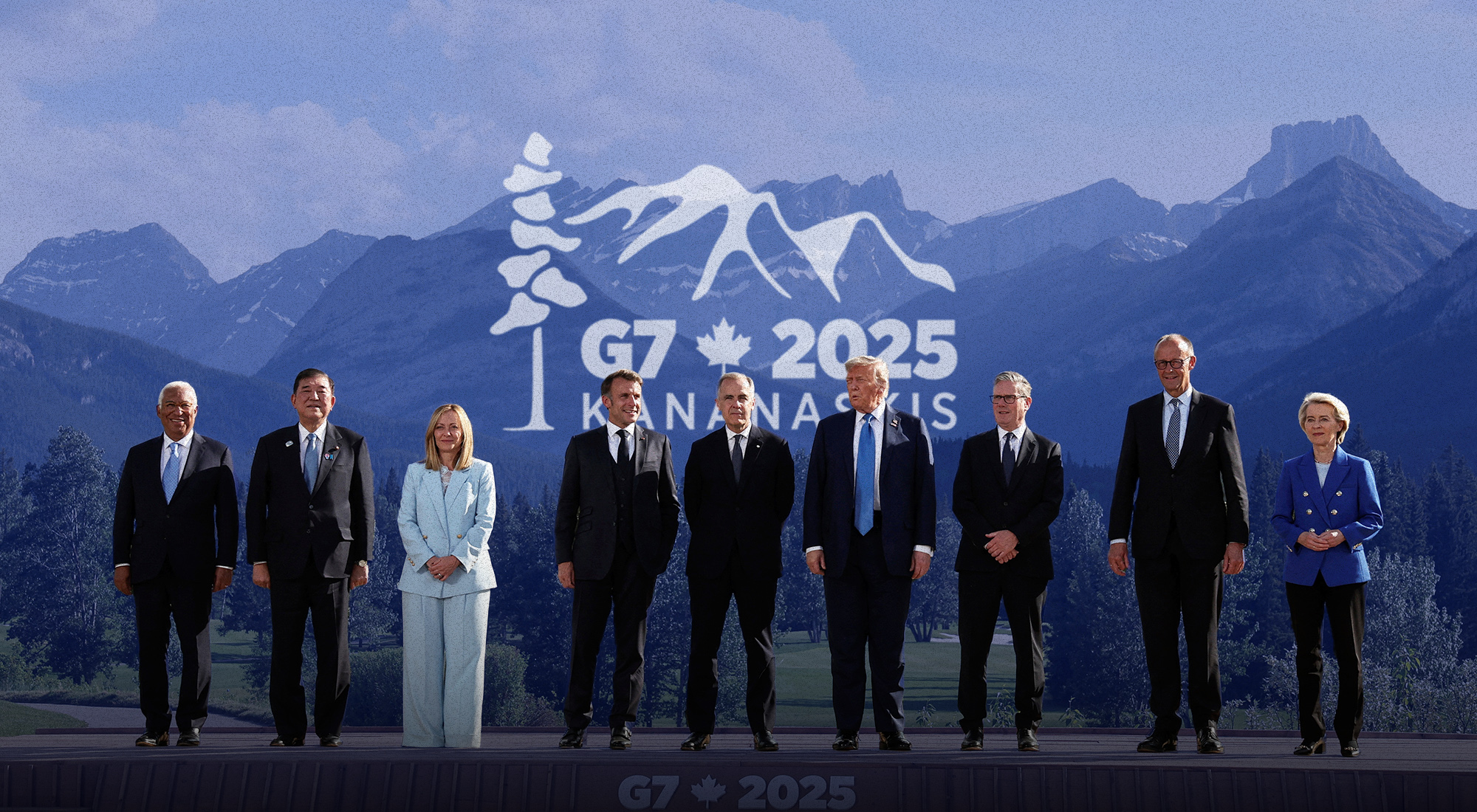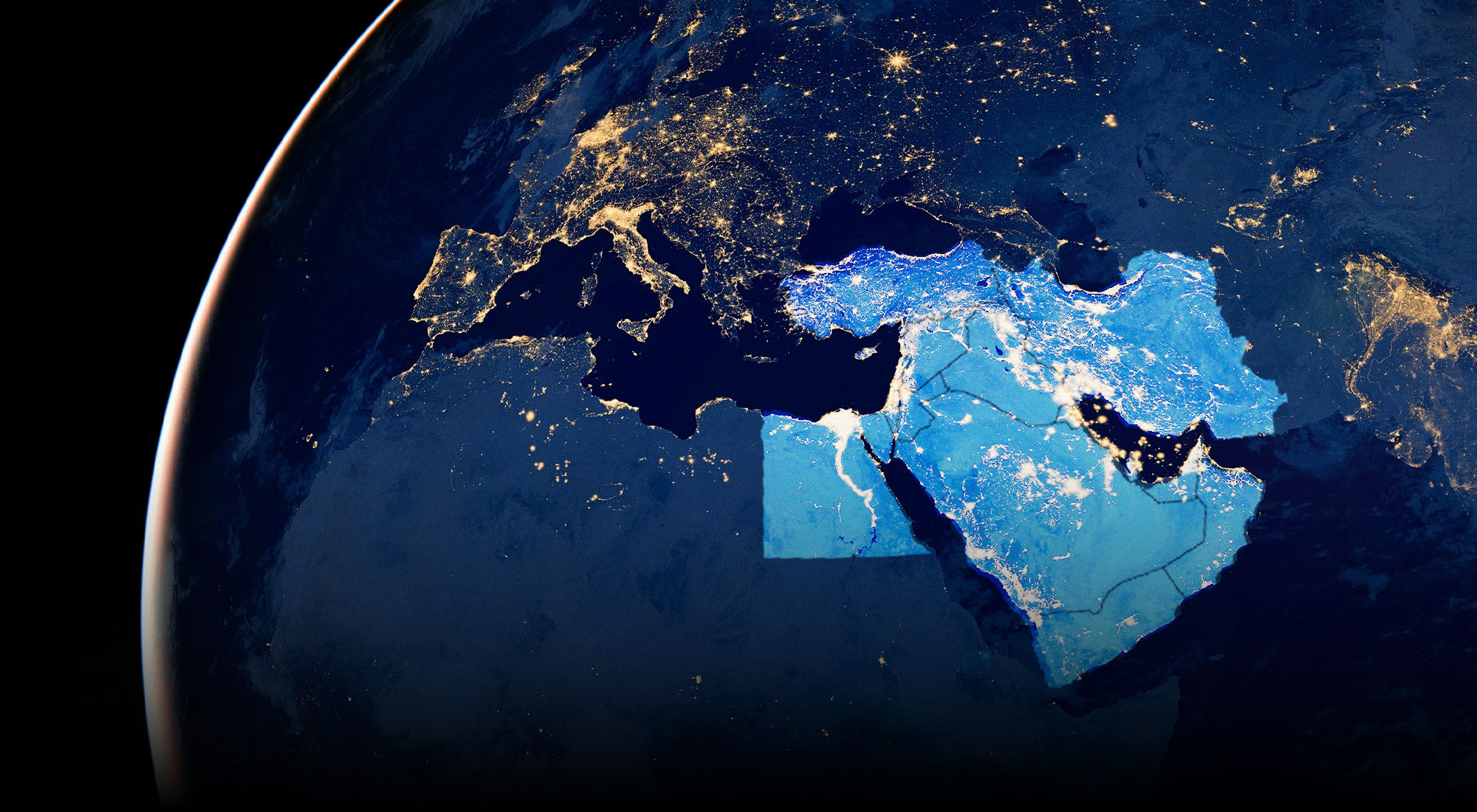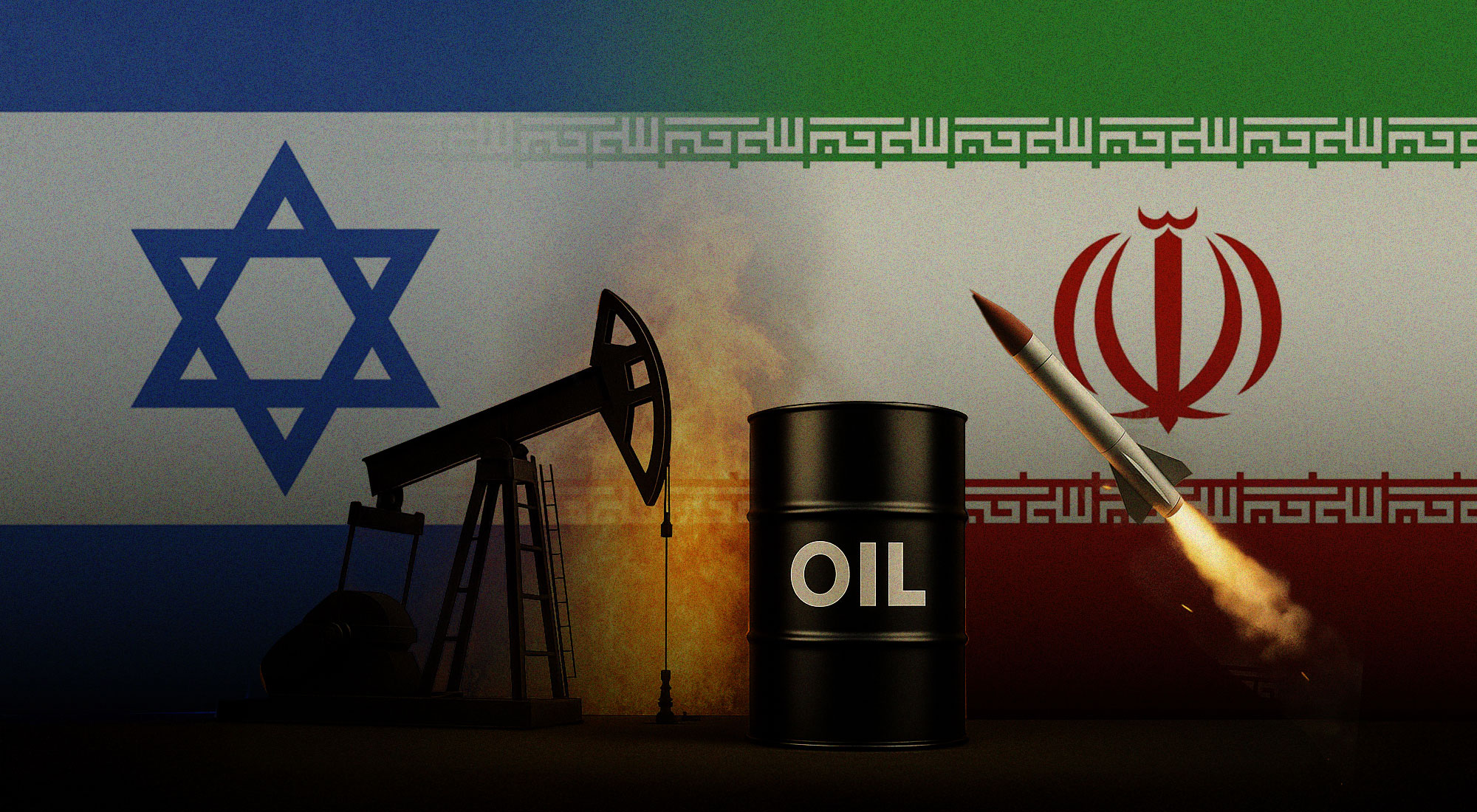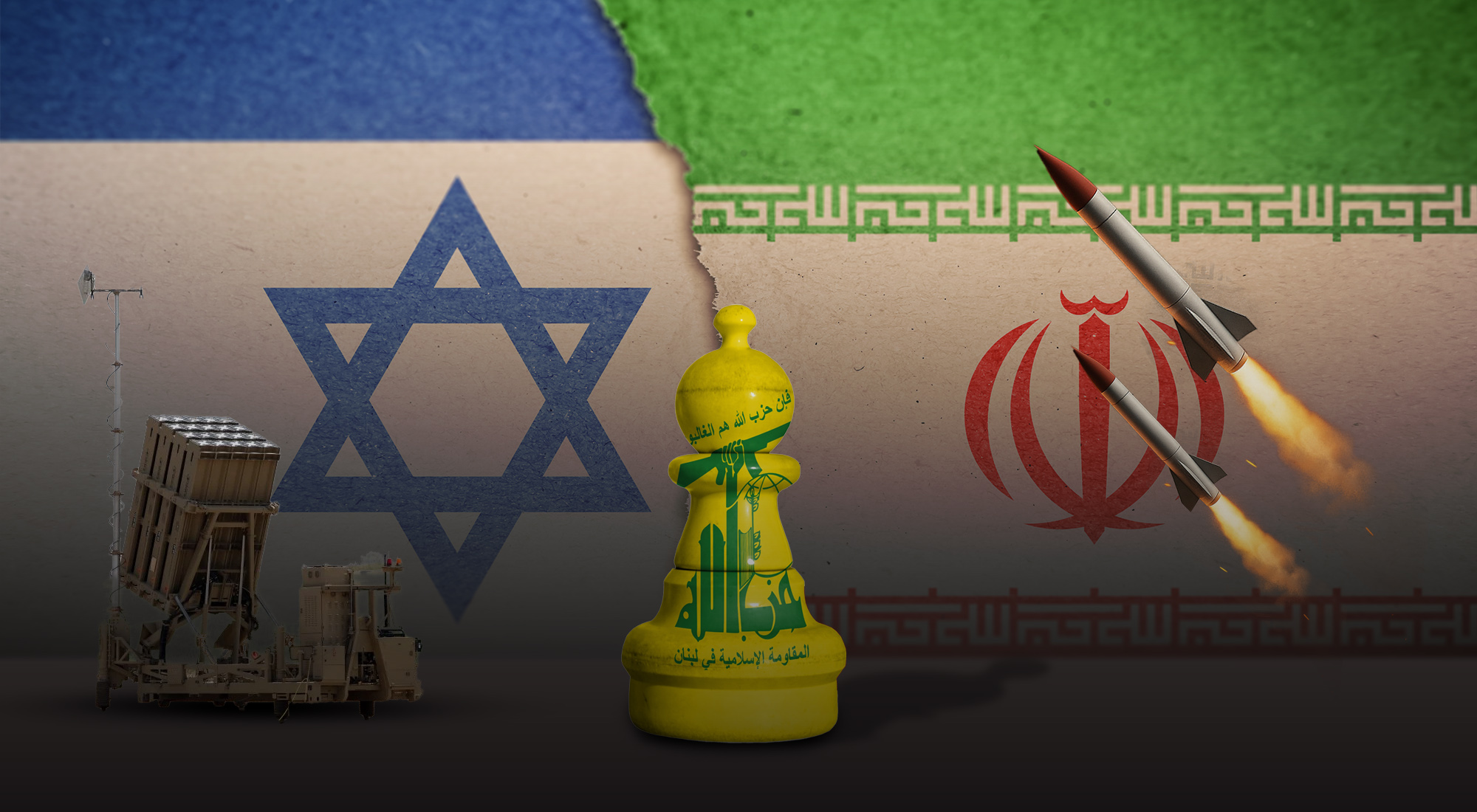On 10 July 2023, Iraqi Prime Minister Mohammed Shia Al-Sudani convened an emergency meeting[1] with energy officials to explore alternatives to Iranian gas, including supplies from Qatar and Turkmenistan. The meeting was held in response to the abrupt suspension of Iran’s gas exports to Iraq, which resulted in the reduction or shutdown of power plant operations in Al-Mansuriyah, Baghdad, Sadr, and some other regions of the country. Iraq’s electricity ministry declared that Iran’s restrictions on gas exports to its neighbor had caused the country to lose approximately five thousand megawatts (MW) of power.[2] In order to attain stability in electricity supply, Iraq urgently needs 40,000-MW of power,[3] of which 26,000 MW of electricity is generated from imported gas, primarily from Iran.
Because of this, Al-Sudani directed the Iraqi government[4] to come up with quick fixes and alternatives as well as to continue its initial efforts to import gas from Turkmenistan and Qatar. In this regard, Iraqi Parliamentary Committee on Electricity and Energy[5] met the Minister of Electricity, Ziyad Ali, and his accompanying delegation on 15 July to look for alternative options for obtaining and purchasing gas, including gas supplies from Turkmenistan and Qatar. Regarding this, Iraqi Oil Minister Azzat Sabir announced on 24 August that “an initial agreement has been reached with Turkmenistan regarding the import of gas for the operation of their power plants. The agreement between the two countries was reached after negotiations in Ashgabat. Details will be reflected in the relevant agreement. The agreement, which will be signed closer to the end of the year, will determine the volumes of gas that Turkmenistan will supply to Iraq.”[6]
During this process, on 6 October, Turkmenistan’s Minister of State and Chairman of the State Concern “Turkmengaz” Maksat Babayev visited Baghdad. On the same day, Turkmenistan and Iraq signed a Memorandum of Understanding (MoU) on the supply of natural gas to meet the needs of production stations and the electrical system. “The preliminary agreement is to import approximately 25 million cubic meters (883 million cubic feet) of gas per day” from Turkmenistan.[7] In the continuation of this process, on November 8, 2023, a meeting between representatives of the State Concern “Türkmengaz” and the delegation of the Republic of Iraq led by the Minister of Electricity Ziad Ali Fadel took place in Ashgabat. According to the protocol that was signed in this meeting, 9 billion cubic meters of Turkmen natural gas will be transported annually through Iran to Iraq under the SWAP scheme during 5 years.[8]
However, this agreement, if implemented, will not completely solve the problem of Iraq and it can only help reduce the current problems of gas and electricity shortages in this country. The truth is that Iraq suffers from persistent power shortages despite its large oil and gas reserves. This is particularly noticeable in the summer, when temperatures rise above 50 degrees Celsius (122°F) and power consumption peaks. Although the current production volume of gas in southern Iraq is about 900 million cubic feet and 300 million cubic feet in northern Iraq, these amounts are insufficient to meet the demand, Iraq’s minister of electricity, Ziad Ali Fadel stressed.[9]
Indeed, on the one hand, the limitation of water resources — particularly in light of Turkey’s control of water flows from the upstream areas of the Tigris and Euphrates rivers in recent years — has posed challenges in the development of dams and hydroelectric power plants for electricity generation in Iraq. On the other hand, Iraq’s thermal power plants, which use gas fuel, are heavily dependent on imported gas input from Iran.
Despite the close political relations between Iran and Iraq, unilateral U.S. sanctions against Iran and payment problems for imported gas by Iraq have caused several disruptions in Iran’s gas exports to the country in recent years, and the halt of gas in early July 2023 was the latest example of this. Iraqi Prime Minister Al-Sudani, in the emergency meeting, noted that “the U.S. sanctions and non-compliance with the gas dues payment mechanism agreed upon in 2018 caused a 50 percent reduction in gas supplies from Iran which negatively affected electricity production in Iraq”.
Although in June, Iraqi officials received U.S. permission to pay about $2.76 billion to Iran after receiving clearance from U.S. Secretary of State Antony Blinken, and the Iraqi Minister of Electricity also announced that all of Iran’s gas payments have been deposited into the Trade Bank of Iraq (TBI), it appears that the problem of receiving payments for Iran’s gas exports to Iraq, especially blocking Iranian gas money in the TBI, has not been fully resolved yet.
To overcome these challenges, the Iraqi government is pursuing two options simultaneously in the domestic and international arenas. In the domestic area, Iraq is planning to build combined cycle power plants totaling 4,000 MW in the next two years,[10] which use both a gas and a steam turbine together to produce electricity. This will be only a small portion of the 26,000 MW of electricity generated from imported Iranian gas. However, in the international arena, as was previously mentioned, Baghdad is looking for new sources of gas imports to reduce the negative impact of Iran’s sanctions and banking issues on the sustainable supply of Iraq’s electricity network. In this regard, Turkmenistan and Qatar are the two main options for the Iraqi government.
However, with respect to Turkmenistan’s role — the primary focus of this article — it has the fourth-largest proven gas reserves in the world, after Qatar, Iran, and Russia, with around 50 trillion cubic meters (tcm). Indeed, Turkmenistan’s permanent neutrality policy in foreign policy also enables the country to cooperate with various parties, including China, Russia, Iran, Azerbaijan, Turkey, and Europe, in the field of energy. However, given the geographical distance between the two countries, the question is how to supply a portion of Iraq’s imported gas.
The first and most likely option is the transit or swap of Turkmenistan’s gas to Iraq via Iran. In transit, although it can be done utilizing the existing Iran-Turkmenistan-Turkey gas pipeline to transfer gas to northern Iraq and through the Turkmenistan-Iran pipeline to transfer gas to the eastern and central parts of Iraq, this is very difficult in practice. In this regard, Gholam Hossein Hasantash, a faculty member of the Institute for International Energy Studies (IIES) Tehran, in an interview with the author, said it is currently not possible to transport gas from Turkmenistan to Iraq through Iran unless a separate pipeline is built with the financial support of both Iraq and Turkmenistan, as well as Iran’s approval. However, due to the high level of investment required for such a pipeline, which would be more than 1000 kilometers long and pass through mountainous areas, it seems very difficult to conclude such a tripartite agreement.
Another option will be the swap of Turkmenistan’s gas to Iraq via Iran. Recent agreements between Turkmenistan and Iraq show that both sides have chosen this option. Before this, Iran has taken steps in the field of gas swap with Turkmenistan. In this regard, a trilateral gas cooperation between Turkmenistan, Iran, and Iraq may be formed as a result of the resolution of long-standing gas disputes between Iran and Turkmenistan and the trilateral gas swap agreement signed on November 27, 2021, by Turkmenistan, Iran, and the Republic of Azerbaijan.[11] Indeed, Iran repaid $1.6 billion in gas debts to Turkmenistan using its deposits withheld in Iraqi banks.[12] This can facilitate the transfer of Turkmenistan’s gas to Iraq via Iran, which can help Iraq reduce its dependence on Iranian gas imports and ensure a more sustainable supply of gas for its electricity network.
It is important to remember that most of Iran’s oil and gas fields, including the “South Pars Gas Field,” are located in the country’s south and southwest. Although Iran has a wide network of gas transmission lines, during the winter season, the country’s northeastern and northern provinces, including Razavi Khorasan, North Khorasan, Mazandaran, and Golestan, with their high gas consumption, cause a sharp drop in gas pressure in pipelines and distribution stations. To overcome this challenge, Iran has pursued a trilateral gas swap agreement with Turkmenistan and the Republic of Azerbaijan, as well as a bilateral gas import agreement with Turkmenistan to import 10 million cubic meters of gas per day.
Therefore, the formation of a trilateral gas swap agreement between Turkmenistan, Iran, and Iraq is possible and can lead to more stable and sustainable supply of gas for Iran’s domestic needs, especially during the winter months. Gholam Hossein Hasantash in the interview with the author said that “logistically, swapping is completely possible. If the potential of such a swap exists, transit has no economic logic at all.” The important point is that 83 percent of Iran’s power plants use gas sources and less than 20 percent of them use other sources, including water. Consequently, during the winter months, when gas consumption peaks and pressure drops, not only households face problems, but also power plants face a serious challenge. In fact, the problem that Iraq is facing in the summer, Iran will deal with in the winter. As a result, trilateral gas cooperation between Iran, Iraq, and Turkmenistan can help address the issue of supplying sufficient gas to Iran’s power plants during the winter and high gas consumption during that time, while also providing assistance to Iraq’s power plants during the summer. Additionally, from a financial and banking perspective, the Iraqi government will be a party to Turkmenistan, and the level of sanctions and banking restrictions imposed by the U.S. on Iraq will also be reduced.
The second option for exporting Turkmenistan’s gas to Iraq is Liquefied Natural Gas (LNG), which can be transferred by tankers. The volume of gas transportation via tankers is much lower compared to pipelines, and LNG is usually twice as expensive as piped gas. Hasantash said that “at present, Turkmenistan is not among the countries that produce and export LNG and lacks liquefaction facilities. Moreover, because it does not have access to open waters, it cannot potentially be a major exporter of LNG. It does not have any LNG receiving terminals”.
However, the main advantages of LNG will be Turkmenistan’s direct gas exports to power plants in different parts of Iraq and meeting some of the country’s gas needs, particularly during pressure drops in the Turkmenistan and Iranian gas transmission lines. Although Turkmenistan’s production and export capacity for LNG cannot be compared to a country like Qatar, Turkmenistan has taken steps in recent years to develop its LNG industry, and in May 2023, the country started exporting LNG to Pakistan through Afghanistan’s Kandahar for the first time, which included 50 gas tankers, each carrying 30 tons of gas.[13]
Overall, it seems that in both forms of gas exports or swaps from Turkmenistan to Iraq through pipelines or LNG exports, Iran will play the most important intermediary role between Ashgabat and Baghdad. While it appears that the Iraqi government is considering a mixed approach to importing gas from Turkmenistan through both pipelines and LNG exports, the reality is that the main form of gas imports from Turkmenistan to Iraq will be through pipelines, whereas LNG will be the main mode of gas imports from Qatar.
[1] “Iraq turns to Qatar, Turkmenistan to reduce reliance on Iranian gas,” The Cradle, July 11, 2023, https://new.thecradle.co/articles/iraq-turns-to-qatar-turkmenistan-to-reduce-reliance-on-iranian-gas.
[2] “Iraq loses 5000 MW of power as Iran decreases gas supply,” Rudaw.net, July 5, 2023, https://www.rudaw.net/english/middleeast/iraq/05072023.
[3] “Iraq Dependent on Iran’s Gas Import for Generating Electricity: Minister,” Tasnim News Agency, July 25, 2023,
[4] “Iraq continues efforts to import gas from Turkmenistan, Qatar,” Iraqi News, July 11, 2023, https://www.iraqinews.com/iraq/iraq-continues-efforts-to-import-gas-from-turkmenistan-qatar/
[5] “Iraq plans gas imports from Qatar, Turkmenistan,” Shafagh News, July 16, 2023, https://shafaq.com/en/Iraq-News/Iraq-plans-gas-imports-from-Qatar-Turkmenistan.
[6] “Turkmenistan to supply gas to Iraq,” Azer News, August 28, 2023, https://www.azernews.az/region/214089.html.
[7] “Iraq signs ‘preliminary’ gas deal with Turkmenistan,” Al Monitor, October 6, 2023, https://www.al-monitor.com/originals/2023/10/iraq-signs-preliminary-gas-deal-turkmenistan#ixzz8Gr8Kpq9J.
[8] . “Turkmenistan will export natural gas to Iraq”, Ministry of Foreign Affairs of Turkmenistan, November 9, 2023
https://mfa.gov.tm/en/news/4181
[9] “Iraq Dependent on Iran’s Gas Import for Generating Electricity: Minister”, Tasnim News Agency, July 25, 2023,
[10] “Iraq unveils plan for 4,000 MW combined cycle power plants,” Zawya, January 10, 2023, https://www.zawya.com/en/projects/utilities/iraq-unveils-plan-for-4-000-mw-combined-cycle-power-plants-npnkyhe0.
[11] Vali Kaleji, “New Gas Cooperation Between Iran and Turkmenistan: Prospects and Limitations”, Eurasia Daily Monitor, Jamestown Foundation, December 17, 2021, https://jamestown.org/program/new-gas-cooperation-between-iran-and-turkmenistan-prospects-and-limitations/.
[12] “Iran signs gas swap deal with Turkmenistan, Azerbaijan,” Argus Media, November 29, 2021, https://www.argusmedia.com/en/news/2278061-iran-signs-gas-swap-deal-with-turkmenistan-azerbaijan.
[13] Aygerim Sarymbetova, “Turkmenistan Begins Exporting Gas to Pakistan via Afghanistan,” Caspian News, May 2, 2023, https://caspiannews.com/news-detail/turkmenistan-begins-exporting-gas-to-pakistan-via-afghanistan-2023-5-2-0/.



